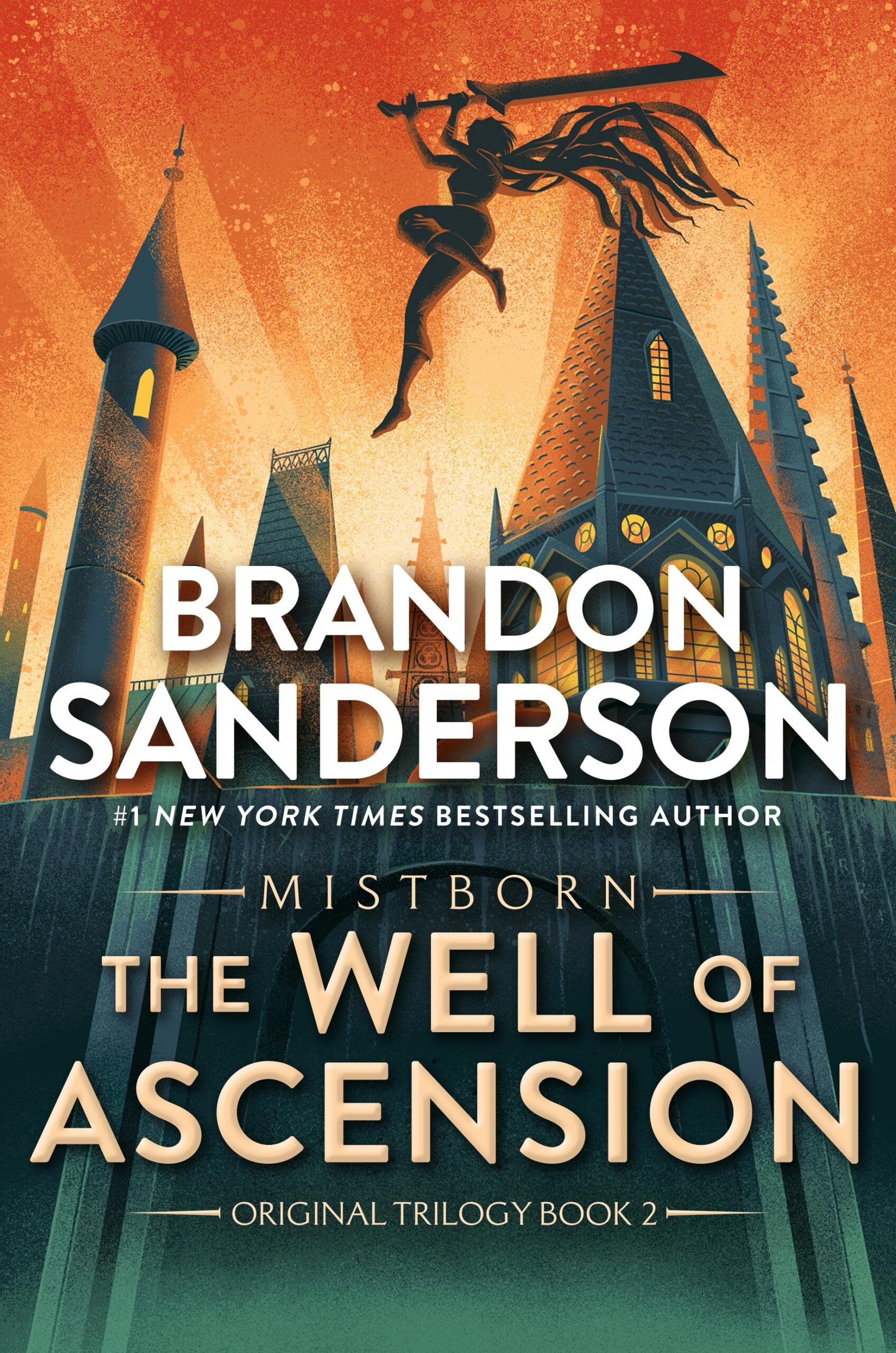
The Well of Ascension
57
by Sanderson, BrandonThe chapter opens with a heated debate among the rulers of the Central Dominance, now under Elend’s imperial rule. Lord Cett aggressively advocates for immediate military action to reclaim his lost territory, Fadrex City, while Janarle and Penrod urge caution, emphasizing the need to stabilize their current holdings first. Sazed, seated at the head of the table, struggles to mediate the discussion, feeling out of place and inadequate in his role. The tension highlights the fragile nature of their coalition, held together largely by the threat of Vin’s power as a Mistborn.
Sazed attempts to steer the conversation by reminding the group of Vin’s extraordinary abilities, hoping to maintain unity through their shared reliance on her. However, he battles personal apathy and grief over Tindwyl’s death, which saps his motivation to engage fully in the political maneuvering. Despite his inner turmoil, he manages to broker a compromise, allowing Cett to send scouts for reconnaissance but forbidding any aggressive actions. This decision underscores the delicate balance between ambition and restraint in their fledgling empire.
The discussion shifts to logistical concerns, such as food supplies from Urteau, revealing underlying tensions and mistrust among the rulers. Janarle’s evasiveness about unrest in the Northern Dominance prompts Cett to accuse him of prioritizing his own interests over the collective good. This exchange exposes the precariousness of their alliance, where personal agendas threaten to undermine their shared goals. Sazed’s passive role in this conflict further emphasizes his emotional detachment and the weight of his grief.
The chapter concludes with Sazed reflecting on the futility of their political struggles in the face of his personal loss. His internal monologue reveals a man grappling with despair, questioning the significance of their efforts when his own world has been shattered. Yet, he forces himself to remain engaged, recognizing that Vin’s power is the only glue holding their fragile coalition together. This poignant moment underscores the human cost of leadership and the emotional toll of maintaining order in a fractured world.
FAQs
1. What are the primary points of contention between Lord Cett and the other leaders in this chapter?
Answer:
The main conflict revolves around Lord Cett’s urgent desire to reclaim his homeland of Fadrex City through immediate military action, while Janarle and Penrod advocate for patience and stabilization of their current territories. Cett wants to send scouts and prepare for invasion, arguing that political scheming delays necessary action (as evidenced by his table-pounding frustration). The others emphasize waiting for Elend’s return, focusing on rebuilding Luthadel, and following proper political protocols. Janarle specifically cites political theory about stabilizing existing holdings before expansion, while Penrod appeals to subtlety and long-term strategy. Sazed mediates by allowing limited scouting but no military engagement.2. How does Sazed attempt to maintain control of the meeting, and why does he feel inadequate in this role?
Answer:
Sazed tries to keep the leaders focused by repeatedly reminding them of Vin’s unparalleled power—her control of koloss and supernatural abilities—as a unifying threat that maintains their fragile coalition. However, he struggles with feelings of apathy and disconnection due to Tindwyl’s recent death, which undermines his usual diplomatic effectiveness. The text notes he “felt so inadequate” because he couldn’t steer discussions productively or solve their problems, only defaulting to Vin’s reputation. His internal conflict between duty and grief (“Why did anything matter?”) highlights his emotional turmoil and temporary loss of purpose.3. Analyze the significance of Janarle’s revelation about unrest in Urteau. How does this connect to broader themes of power and stability?
Answer:
Janarle’s mention of “an unwholesome element” causing trouble in Urteau exposes the instability of the New Empire’s territories when leadership is absent—a recurring theme in the series. This revelation justifies his urgency to return north, contrasting with Cett’s southern priorities. It also underscores the book’s exploration of how power vacuums emerge: Elend and Vin’s absence creates vulnerabilities, and local factions (possibly skaa rebels or opportunists) challenge imperial authority. The tension mirrors real political struggles where centralized control weakens without constant reinforcement, tying into the chapter’s broader debate about expansion versus consolidation.4. How does the chapter characterize Lord Cett’s leadership style compared to traditional Final Empire nobility?
Answer:
Cett embodies a brash, militaristic approach that rejects the subtlety and scheming of traditional noble politics. He dismisses decorum (pounding tables, interrupting) and openly criticizes political games as ineffective (“Nothing gets done!”). His preference for direct action—seen in his demand for scouts and raids—contrasts with Penrod’s tact and Janarle’s theoretical adherence to political doctrine. Notably, Cett prides himself on having avoided the Lord Ruler’s system, reflecting his outsider status and pragmatic ruthlessness. However, his impulsiveness is framed as a weakness when Sazed must impose limits on his plans, showing that pure force lacks nuance in governance.
Quotes
1. ““I think that we should not be hasty, Lord Cett,” Sazed said.”
This quote captures Sazed’s cautious leadership style as he mediates between the impulsive Cett and the more measured Janarle and Penrod. It represents the tension between action and patience in governance.
2. ““Lady Vin isn’t simply the ‘best Mistborn.‘“”
Sazed’s powerful statement underscores Vin’s extraordinary abilities that hold the fragile alliance together. This quote is pivotal as it shifts the conversation to acknowledge the true source of their collective security.
3. ““Without Vin’s leadership—without the threat of her power—this coalition would dissolve in three heartbeats.””
This internal monologue reveals Sazed’s acute awareness of the political reality and Vin’s crucial role in maintaining stability. It’s a key insight into the power dynamics of their post-imperial world.
4. ““Patience brings the greater prize.””
Penrod’s wisdom contrasts sharply with Cett’s impulsiveness, representing the chapter’s central debate about timing and strategy in rebuilding their world. This concise statement encapsulates the conservative approach to governance.
5. “Why did anything matter, now that Tindwyl was dead?”
This raw emotional moment reveals Sazed’s personal struggle with grief amidst his political responsibilities, adding depth to his character and showing how personal loss affects leadership.
